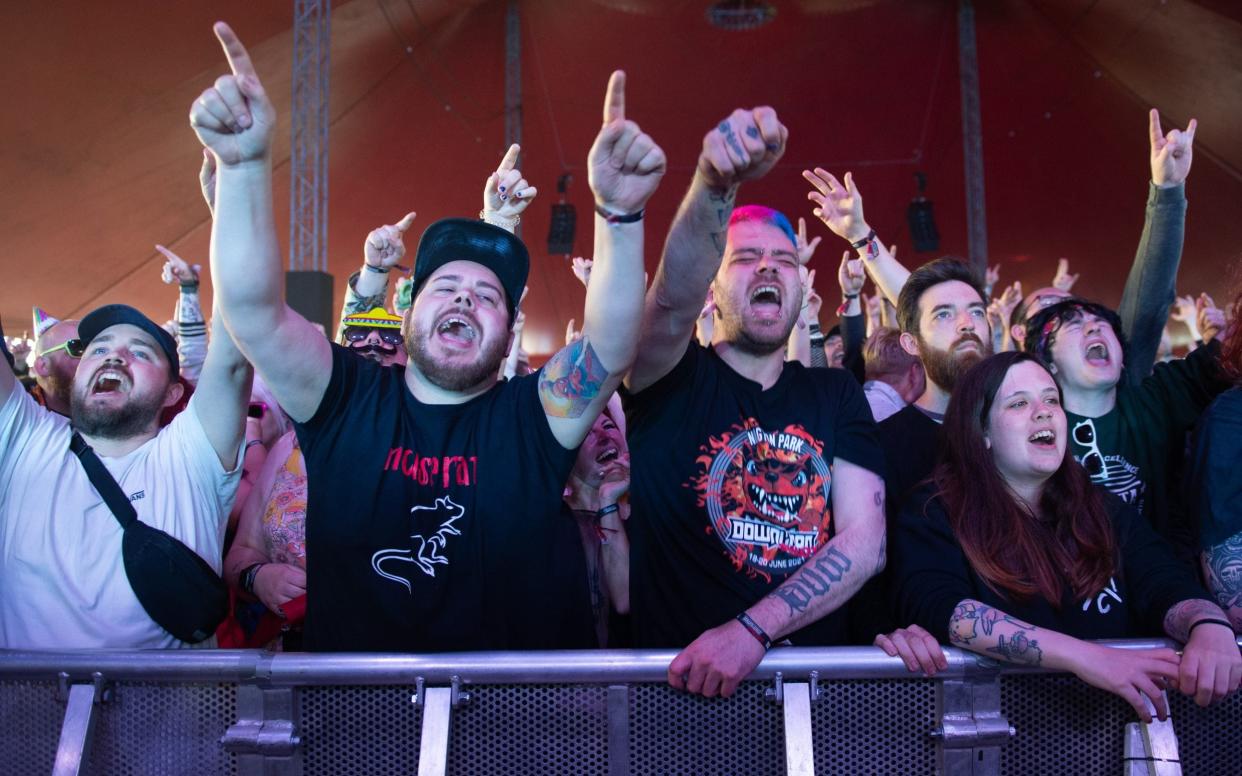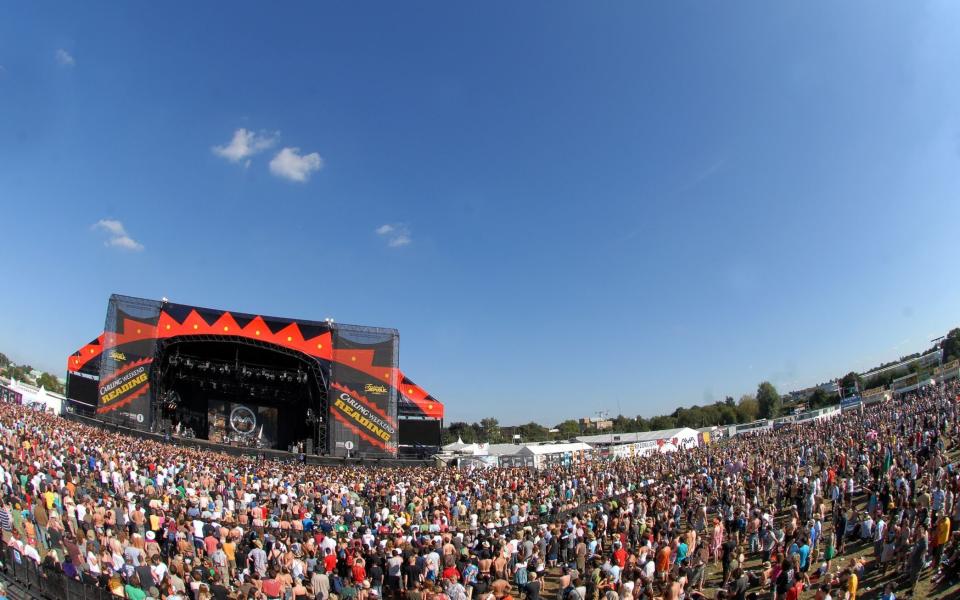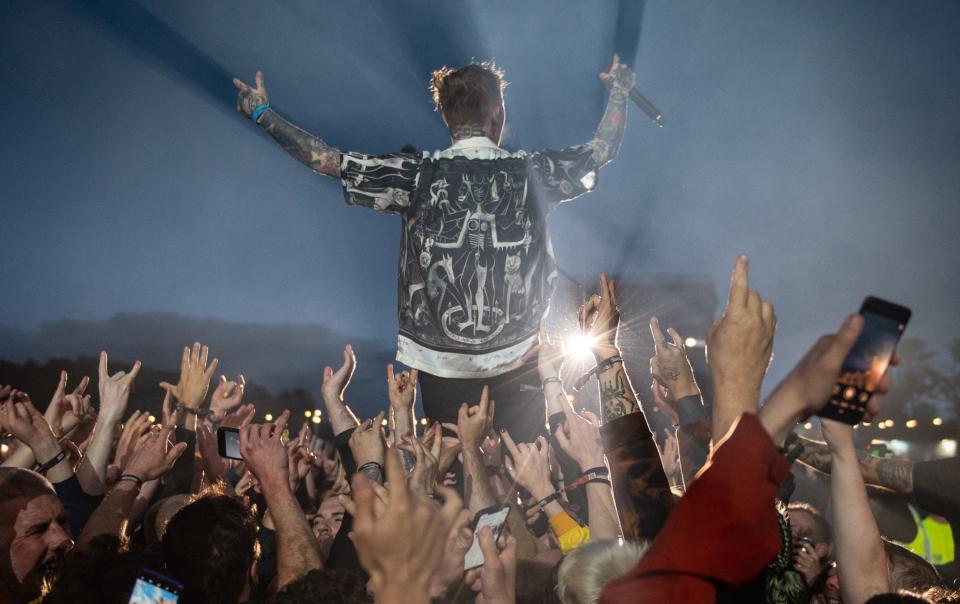Vaccine passports, masks, or business as usual? What live music will look like after July 19

- Oops!Something went wrong.Please try again later.
- Oops!Something went wrong.Please try again later.
- Oops!Something went wrong.Please try again later.
The Prime Minister’s words yesterday evening were music to the ears of anyone who works – worked – in the live entertainment industry. All things being equal, from July 19 and after 490 days of a brutal lockdown which saw speaker stacks remain unplugged and music venues lie empty, the world should return to normal.
Boris Johnson said that from this date, presuming it marks the long-awaited Step 4 of his roadmap to freedom, all social distancing rules will be removed as will all legal limits on the number of people meeting indoors and outdoors, “including concerts and nightclubs”.
You could almost hear music fans, promoters, musicians, venue owners, stage crews and the entire live music eco-system punch the air in joy. “Delighted,” is how Phil Bowdery, the chairman of the Concert Promoters Association sums up his mood. “Extremely welcome news,” says Mark Davyd, the chief executive of the Music Venues Trust. “Very pleased,” says Greg Parmley, the CEO of Live, the trade body for Britain’s £4.6 billion live music industry.
Dan Hawkins, guitar player in The Darkness, cannot wait to hit the road again. “The roadies’ seemingly endless tour bus farts will never smell sweeter,” he tells me. The Darkness are headlining the Steelhouse Festival in Wales at the end of this month. “It’s such a huge relief to be able to perform again. Imagine an artist having their brushes locked away indefinitely. It’s not just what we do for a living, it’s who we are,” he says. “Our crew will feel the same, they have been out of work for nearly a year and a half too.”
But will it really be business as usual for live events? Will concerts and gigs really return to normal overnight? Johnson’s talk about “changing the tools used to control human behaviour” and “moving away from legal restrictions” sounded definitive. Even though cases of Covid-19 are rising, there’ll be no legal obligation to wear a face mask, for example, and the ‘one metre-plus’ rule will be binned. Or will things remain tentative, in spite of the rules changing? We’re not out of the woods yet, after all. Labour leader Sir Keir Starmer said lifting all protections on one go would be “reckless”.
John Giddings is the veteran promoter behind the Isle of Wight Festival, which takes place in September having been moved back from June. The pandemic has hit Giddings hard. In the last year he has also had to re-arrange tours “two or three times” for the likes of Genesis, Little Mix, Iggy Pop and Lady Gaga. Giddings says it’s “fantastic” that this “unbearable” situation is coming to an end. He says waiting until the autumn or next year to end lockdown would “crucify the country.”
Giddings says the extent to which ‘normality’ returns will be down to local authorities and individual promoters. “There will still be some [Government] guidance on people having to do tests if they haven’t had jabs or whatever, but it will be down to the local public health people. This will basically put it back in the hands of collective responsibility and the locals. The [Government] are giving you guidance but it is up to you what you want to do,” he says.
It is up to promoters like him to protect their audience and make them feel safe, he says. On wearing masks, it will be down to the “personal choice” of concert-goers. And on vaccinations, he says that by the time the Isle of Wight comes around in September, people who have had two jabs will be able to get in without having to do a lateral flow test.
Melvin Benn, the boss of Festival Republic and the man behind the Latitude and Reading and Leeds Festivals, believes that a concert after Freedom Day will look and feel very much like a concert did before the pandemic upended the world. He told the Today programme that it didn’t matter that the vast majority of ticket-holders for Reading and Leeds are under-30 and could therefore still be unvaccinated when the dates come around at the end of August. This is because the risk to this cohort of serious illness or death from Covid is significantly less than the risk to himself, a double-jabbed man in his mid-60s.

“I think the Government has got this right,” Benn said. “I’ve heard the codswallop that the Labour front bench are putting out. It’s nonsense. We want to reopen. The country wants to reopen. We are tired of this. We are ready to reopen and we need to reopen because the risk is not so great. Quite honestly when [England’s chief medical officer] Professor Whitty is supporting it, why would we do anything other than stand by that?” said Benn.
Giddings agrees with Benn about Starmer’s “reckless” comment. It seems that the Labour leader has some work to do when it comes to making friends in the live music world. “I think Keir Starmer has never had a thought of his own. Whatever the Government says, he criticises it. For ten seconds I thought he might be a decent opposition,” says Giddings.
Nightclub operators also welcomed yesterday’s news. DJ Yousef runs Liverpool’s Circus nightclub, which held Government test events in the city’s Bramley Moore Dock Warehouse on April 30 and May 1. The events saw 6,000 ravers dance to the likes of Fatboy Slim. Yousef tells me that post-July 19 (if that’s the date) he will encourage people to “use their own discretion” and “be adults”. If they want to wear a mask or social distance, it is up to them.
As an experienced DJ, does he see things returning to normal soon? “I think in the very short term, yes. I am hoping that the Covid conversation naturally fades off into the ether once we get into some form of normality. I am hoping that this is the beginning of the end,” he says.
But despite the general positivity surrounding Johnson’s news yesterday, there remain huge hurdles for the live entertainment industry to jump. The devil, sadly, lurks in the detail of what was said – or not said – yesterday.
Insurance remains an issue. At the moment, insurance companies are refusing to cover live events in the case of Covid cancellation. The industry has long called for a Government-backed insurance scheme, but this has not been forthcoming. Parmley from the live music trade body called for this safety net to be put in place. “To save the rest of the summer and autumn schedule we now desperately need a government-backed insurance scheme to provide the security required to invest in events. Government ministers have repeatedly said that a scheme would be announced once the legal barriers to full performances were removed,” he says. Bowdery from the Concert Promoters Association adds that insurance is the “one piece of the puzzle missing”.

Paul Reed from the Association for Independent Festivals urged the Government to act on insurance and said that 56 per cent of UK festivals had already been forced to cancel this summer.
Another barrier to normality is track and trace. The inevitable increase in cases that will follow a lifting of restrictions will mean that many more people will get ‘pinged’ and have to self-isolate for days, even if they’re negative. This will disproportionately affect those who work in venues (on indeed on stage, as the cast of musical Hairspray have found out this week).
Ally Wolf is the manager of the Clapham Grand in south-west London. He is currently seven members of staff down due to isolating. While he welcomed the Government’s statement yesterday he is worried that the venue won’t actually be able to open due to a lack of available employees. “If we lose one more staff member we won’t be able to open. If this carries on, with the rise of infections, by the time we get to open with full capacity, no venue will be able to open because we won’t have any managers, performers or security to work,” Wolf says.
A third issue is preparedness. Michael Kill, the chief executive of the Night Time Industries Association, says that if the decision to fully open up on the 19th is announced next Monday then the industry simply won’t have time to get ready. “One week is simply not enough time for businesses to plan to reopen – and it betrays the sense that the Government doesn't understand what it takes to reopen a business after over a year without trading,” says Kill.
And the final issue is confusion. Despite being sick of lockdown, people like rules. They like to know what they are and are not allowed to do. And leaving the issue of masks and social distancing down to individuals could lead to confusion. Yesterday, Professor Chris Whitty outlined three scenarios where he would continue to wear a face covering in the context of rising case numbers. “The first is any situation which is indoors, crowded, or indoors with close proximity with other people... the second situation I'd do it is if I was required to by any competent authority... and the third reason is if someone else was uncomfortable if I did not wear a mask," he said. That leaves a lot of room for conflicting views about what is right and even, dare I say it, potential conflict.
Still, in a big picture sense, yesterday’s news can only be viewed as a very good thing. There is light. “I have never worked so hard for a year and a half to earn no money,” says a relieved-sounding Giddings.
The Darkness’s Dan Hawkins knows just how important the return of live music is. “Bands get paid embarrassingly little from streaming services for the music we painstakingly produce. Unless you are at the very top of the charts, live music is now pretty much the sole income for a band. When I saw the TV footage of the crowd at that Download Festival test concert it made my heart sing,” says Hawkins. “Nothing screams the arrival of normality more than a huge mosh pit full of pissed up muddy blokes pretending to beat each other up.”
Many thousands of musicians and fans across the country would agree with him.

